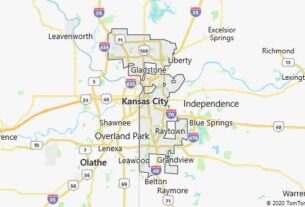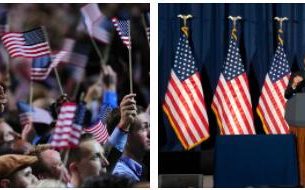According to baglib, the 21st century opened in Mexico with changes of significant political significance that foreshadowed the acceleration of the internal democratization process started in the second half of the nineties of the last century, when the introduction of a new electoral law had given the opposition back the effective possibility to modify the existing balances. In fact, in this period the erosion of the consensus of the Partido Revolucionario Institucional (PRI, in power, under various denominations, since 1929), weakened by scandals as well as by the overall worsening of the economic situation, and there was for the first time his departure from government responsibilities following the defeat of his candidate in the presidential elections of July 2000, won by V. Fox, candidate of the main opposition party, namely the Partido Acción Nacional (PAN), of Catholic and conservative inspiration. In the contemporary legislative elections the PAN and its ally, the Partido Verde Ecologista de México (PVEM), obtained in the Chamber, under the label Alianza por el Cambio, 38.2 % of the votes and 223 seats out of 500, against the36.9 % and 209 seats in the PRI, and 18.7 % and 68 seats in the center-left Alianza por México coalition, made up of five parties, the most important of which was the Partido de la Revolución Democrática (PRD), to which 52 seats went.
The climate of change was also confirmed by the results of the administrative elections, also held in the summer, which ended with the victory of the PRD candidate in Mexico City, and with the defeat of the PRI in the State of Chiapas, considered until then. one of the main strongholds of the party, in which the independent candidate P. Salazar had established himself with a program of openness to the requests of the indigenous communities. In reality, despite the electoral results sanctioning the end of the monopoly of the PRI, the only relative majority of the PAN-PVEM coalition in the Chamber and the renewed supremacy of the PRI in the Senate (60 seats out of 128, against 51of the PAN-PVEM) left very little room for maneuver to the new administration, which in fact encountered considerable difficulties in the following years in carrying out its program of economic revival of the country. Particular resistance was met by the projects to reform the labor market and the tax system, considered, together with the privatization policy and the cuts in social spending, essential to reduce the country’s growing deficit and relaunch production. In an attempt to overcome the political impasse, in October 2001Fox struck a program agreement with some opposition parties, including the PRI, which provided for their support for the adoption of measures aimed at improving the public budget. However, it was above all the PRI that took advantage of it, which thus returned to dominate the political scene, while the decision sharpened the internal conflicts within the PAN and had little practical results. Even the commitments made in the election campaign to resolve the issue of indigenous communities ended up being disregarded in the face of the resistance of the PRI but also of numerous sectors of the same ruling party, contrary to the willingness expressed by the president to the requests of the guerrillas.
The problem had once again come to the attention of public opinion following the decision of the leader of the Ejército Zapatista de Liberación Nacional (EZLN) – the movement that organized the protest of indigenous peoples -, known under the name of Subcomandante Marcos, of to come out of hiding for the first time and to organize a peaceful march across the whole country, to obtain the approval of the bill on the rights of the Indians. Defined in 1996, according to the San Andrés agreements, from the Comisión de Concordia y Pacificación which brought together the main political parties, the new legislation, set aside the agrarian reform, limited itself to providing a series of guarantees in favor of cultural, linguistic and local autonomy of the Indians, and was considered by the EZLN as an indispensable prerequisite for resuming dialogue with the government. Pressured by the international community, Fox initially said he was in favor of the march which, which started in February 2001 from San Cristóbal de las Casas, in Chiapas, after a journey of over 3000km triumphantly reached Mexico City in March under the spotlight of the national and foreign press. The Parliament, cornered, finally approved the text in May which, amended in order to cancel the local autonomy envisaged for indigenous communities, was nevertheless rejected by the EZLN. In the following months, the administration continued to juggle matters of ordinary administration, without being able to address the structural problems of the country, which remained virtually without solution. Alongside the economic difficulties and those attributable to the high rates of unemployment and illegal work, those linked to the growing activity of organized crime involved in drug trafficking, the failure to implement judicial reform and the corruption of large sectors.
At the same time, social malaise grew, and the protest of the peasant population intensified, heavily penalized by the agreements on agricultural products provided for by the NAFTA (North American Free Trade Agreement), the commercial treaty signed in 1993 with the United States and Canada. The poor incisiveness of the government, which also affected financial scandals related to illicit subsidies for the Fox election campaign, contributed to generating a growing disaffection of the electorate towards the PAN, which resulted in the return to power of the PRI in many states and in its reaffirmation in the legislative elections held in July 2003. At the collapse of the PAN, which presented itself alone and dropped to 31.8% of the votes and 153 seats, in fact, was matched by an increase in the consensus of the PRI, which with 37.9 % of the votes returned to win the relative majority of Parliament (224 seats). An unexpected affirmation was also obtained by the PRD, which, also presented alone, rose to 18.6 % and 95 seats, almost double those obtained in previous consultations. The electoral defeat sharpened the internal conflicts in the PAN and further isolated the president, creating a decision-making stalemate in the country: during 2004 and 2005 the government was beaten several times in Parliament on economic and financial policy issues and the proposals for electoral reform and fiscal decentralization were set aside. As general political instability grew, in the summer of 2005 Subcomandante Marcos, after receiving the consent of the assemblies of indigenous communities, proclaimed the launch of a new strategy of the EZLN aimed at promoting action political and not just military, with the aim of rewriting the country’s constitution according to principles of social equity.
In view of the general elections of July 2006, the political debate revived. The liberal programs of the candidates of the PAN and the PRI, F. Calderón and R. Madrazo, were contrasted by that of the leader of the PDR, AM López Obrador (mayor of Mexico City), who centered his campaign on relaunching public intervention in the social sector and in the economy, to overcome pockets of backwardness and absorb unemployment. These issues were of great interest, and in the presidential elections Obrador was defeated by Calderón only by a handful of votes: between the two contenders there was in fact a difference of less than 1 %. Contested by the opposition, which asked for a new count of the ballots, 2006. The PAN also resulted in a majority in both the House and the Senate, obtaining 206 and 52 seats respectively against the 160 and 36 won by the coalition led by Obrador. In foreign policy, Mexico pursued in recent years a strategy aimed at strengthening economic and commercial ties with the United States and Canada. This led to a deterioration in relations with Cuba, a country with which the previous administration led by the PRI had instead always maintained good relations. The tension between Mexico and Cuba came to a head in April 2004, when the Mexican government voted in favor of a UN resolution condemning the Cuban government’s failure to respect human rights. To the criticisms of the Cuban leader F. Castro, Fox responded by breaking off diplomatic relations at the beginning of May, then re-established at the end of the month.



